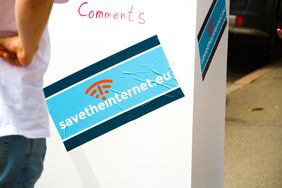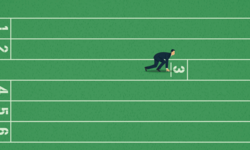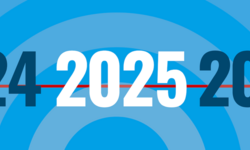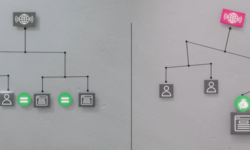
EU Telecom Regulators meet to analyse over 500,000 consultation responses
Tomorrow telecom regulators from all over the EU will gather in Brussels for a uniquely challenging task: analysing over half a million responses to their consultation on net neutrality.
Meanwhile, telecom companies are maintaining their attacks on the open internet - this time by pushing to delete paragraphs regarding free speech from net neutrality rules. This move comes after several associations of journalists expressed their concern that net neutrality violations are a threat to online expression and media pluralism. They argue that strong net neutrality rules (including a clear ban on zero-rating) are needed to ensure everybody has an equal opportunity to be heard online.
BEREC, the Body of European Regulators of Electronic Communications, is on a tight schedule. They must publish new rules on net neutrality by 30 August, which leaves them precious little time to process the hundreds of thousands of responses.
This race against the clock has started as BEREC has to carefully take into account more then 500,000 comments from the the public calling for clear net neutrality,
said Thomas Lohninger, net neutrality activist at savetheinternet.eu.
The unprecedented number of responses demonstrate the public's interest for the delivery of unequivocal guidelines protecting net neutrality. Now, the whole world is watching: it may be the most important decision BEREC ever makes,
said Estelle Masse, Senior Policy Analyst at Access Now, member of SaveTheInternet.eu.
BEREC has had to endure increasingly bizarre and aggressive attacks on its role, its expertise and its analysis from big telecoms operators seeking new internet monopolies,
said Joe McNamee, Executive Director of European Digital Rights (EDRi).
The regulators should not be deflected from their hugely important task,
he added.
Background
Net neutrality is the principle that internet traffic must be treated equally. It protects internet users and online services from interference and discrimination by the telecom operators who own internet infrastructure. At stake are basic, fundamental principles: will the Internet remain a vibrant level playing field for business, culture and political speech? Or will regulators let powerful telecom companies put most websites in a "slow lane", while wealthy corporations pay for special treatment?
In addition to overwhelming public support, the net neutrality movement has also attracted support from a broad range of experts and professionals. 120 entrepreneurs and investors signed an open letter in favour of strong, innovation-friendly net neutrality rules. The scientific community has also joined the fray, with a statement from 126 academic researchers.
One especially prominent proponent is Tim Berners-Lee, the inventor of the World Wide Web, who wrote a joint statement with legal experts Barbara van Schewick (Stanford) and Lawrence Lessig (Harvard) stating that net neutrality is ‘essential to preserve the open Internet as a driver for economic growth and social progress’ and urged regulators to ‘not cave in to telecommunications carriers’ manipulative tactics’.
The telecommunications industry is the main adversary to this broad coalition. This summer, they launched a full-frontal attack on net neutrality in their ‘5G manifesto’, which calls on the EU to water down its net neutrality rules in exchange for investment in new 5G network technologies. More recently, the consultation response from the telecom industry associations ETNO and GSMA, published on 19 July, provoked outrage by demanding an almost complete repeal of net neutrality rules including the deletion of all references to the freedom of expression and media pluralism.
Since you're here
… we have a small favour to ask. For articles like this, we analyse legal texts, assess official documents and read T&Cs (really!). We make sure that as many people as possible concern themselves with complicated legal and technical content and understand the enormous effects it has on their lives. We do this with the firm conviction that together we are stronger than all lobbyists, powerful decision makers and corporations. For all of this we need your support. Help us be a strong voice for civil society!
Become a supporter now!






